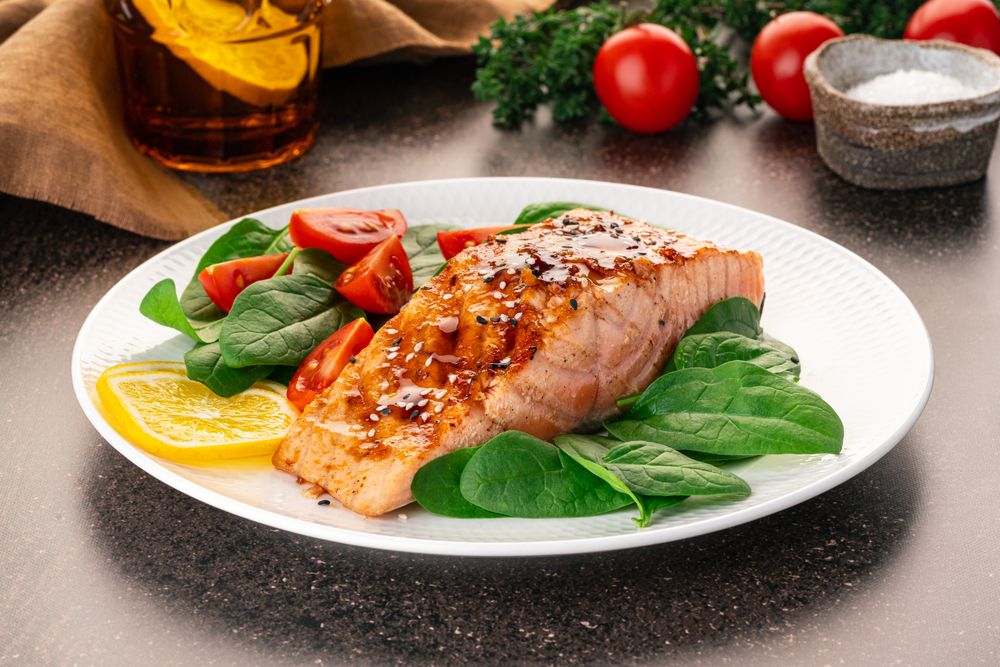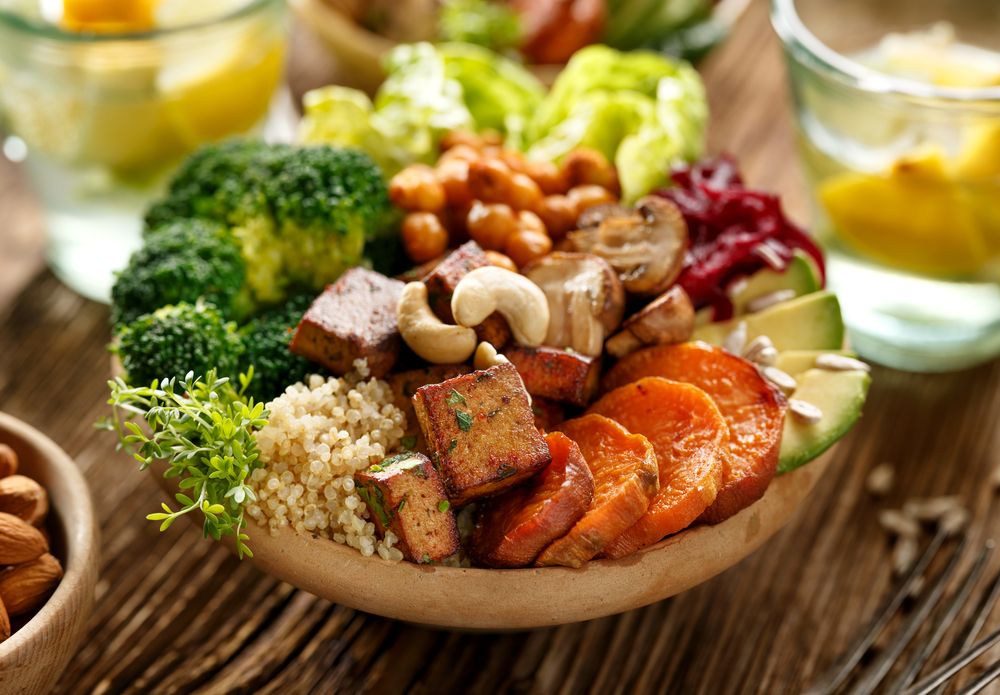
Protein has taken center stage in the American diet—and with good reason. Studies reveal that protein plays a vital role in bolstering the immune system, supporting weight management, and enhancing body composition. It's no surprise that many are seeking ways to add more healthy protein options to their meals.
While protein is undeniably essential, getting the most out of it requires more than just eating more. Factors like how much, when, and the quality of the protein you consume are key to unlocking its full potential.
While the Recommended Dietary Allowance (RDA) for protein is set at 0.8 grams per kilogram of body weight (0.37 grams per pound)—just enough to prevent deficiency—research suggests this baseline isn’t ideal for most people. Many experts recommend aiming for 1.2–1.4 grams per kilogram (0.6–0.9 grams per pound) for optimal health. Physically active individuals and older adults often require even more protein to support muscle repair and mitigate age-related muscle loss.
A practical approach to meeting your protein needs is to include 20–30 grams of protein at each main meal. This range allows your body to efficiently digest and absorb essential amino acids from protein-rich foods. However, not all protein sources are created equal. Fatty cuts of red meat and processed deli meats, for example, are linked to an increased risk of heart disease and certain cancers. Prioritizing high-quality protein sources is vital for maximizing health benefits.
A balanced diet starts with smart protein choices that provide maximum nutrition without unhealthy side effects. To help you on your journey, here are 10 of the healthiest protein-packed foods to add to your meals. For even more tips, don’t miss 16 Easy Ways to Increase Your Protein Intake!
Eggs

Protein (per 1 large egg): 6 grams
Eggs are often hailed as the gold standard of protein. Research published in the journal Nutrients reveals that egg protein is not only highly digestible but also provides all nine essential amino acids. With the highest protein digestibility-corrected amino acid score of any food, eggs are a nutritional powerhouse.
Rich in Essential Nutrients
At just 70 calories per large egg, you’ll get over 13 essential nutrients, including iron, vitamin D, zinc, lutein, zeaxanthin, and choline, along with 6 grams of premium-quality protein. Packed with antioxidants, eggs also offer cellular-level protection, making them a nutrient-dense addition to any diet.
Supports Weight Management
Eggs are a smart choice for breakfast, especially if you’re aiming to manage your weight. Studies show that eggs help curb hunger and reduce calorie intake later in the day. In one study, participants who started their day with eggs lost 65% more weight and more belly fat than those who had a calorie-matched bagel breakfast.
Protective Health Benefits
Beyond weight management, eggs contribute to overall health by bolstering the immune system and offering anti-cancer benefits. Their nutrient profile makes them an excellent choice for those looking to enhance their diet and protect their well-being.
Fish and Seafood
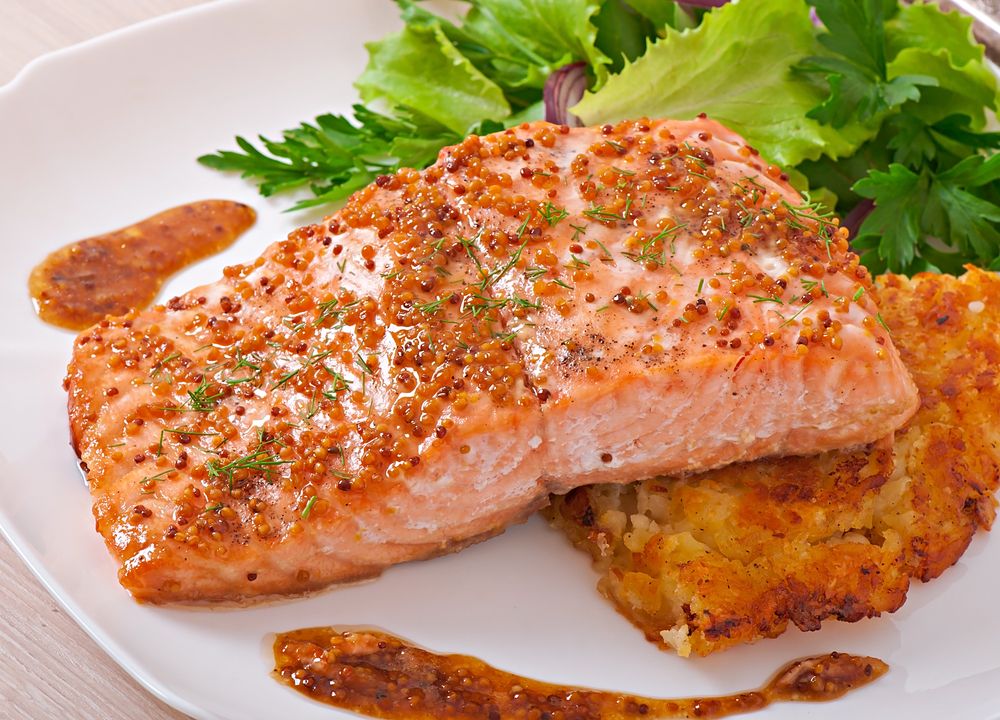
Protein (per 3-ounce salmon filet): 19 grams
Fish and seafood are among the healthiest high-quality protein sources you can include in your diet. Packed with all nine essential amino acids, a single 3-ounce serving of seafood like tuna or shrimp delivers about a third of your daily recommended protein intake, offering 20–25 grams of protein.
Low-Calorie Option
Fish is a lean protein choice, significantly lower in calories than many other protein-rich foods. A standard 3-ounce serving contains roughly 100 calories, making it an excellent option for those aiming to manage their weight without sacrificing nutrition.
Rich in Omega-3 Fatty Acids
Seafood is also an unparalleled source of EPA and DHA, the omega-3 fatty acids celebrated for their heart and brain health benefits. These essential fats help lower the risk of cardiovascular disease, reduce inflammation, and support overall well-being.
Recommended by Experts
The Dietary Guidelines for Americans and the American Heart Association suggest enjoying at least 2–3 servings of fish weekly (6–8 ounces cooked) to meet the recommended 250 milligrams of EPA and DHA per day. Including fish regularly in your meals can boost your health while providing a delicious, nutrient-dense protein source.
Greek Yogurt
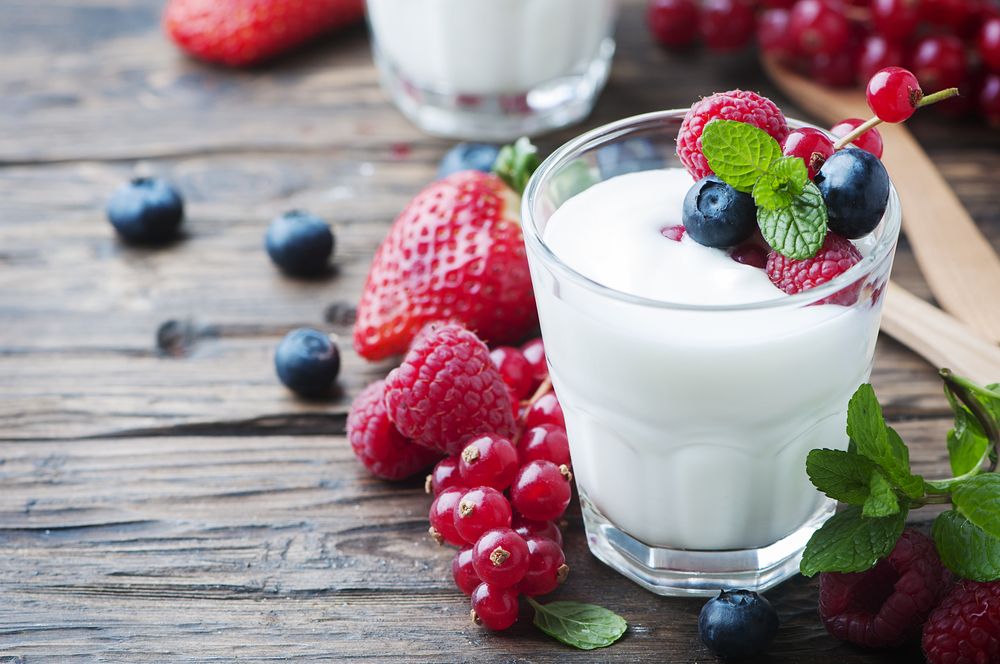
Protein (per 7 ounces): 20 grams
Greek yogurt has long been a staple in European diets, but its popularity in the U.S. has soared as people shift away from sugary, fruit-laden yogurts to more wholesome, protein-rich options.
Concentrated Source of Protein
Greek yogurt stands out for its high protein content, thanks to a unique straining process that removes liquid whey. This creates a thicker, creamier yogurt with double the protein of traditional varieties. A typical 6-ounce serving delivers over 15 grams of protein, with nonfat, no-added-sugar options offering around 100 calories. Additionally, it’s a great source of calcium and packed with probiotics that promote immune health and digestive function.
Supports Muscle Growth and Fat Loss
Greek yogurt is an excellent choice for post-workout recovery. Research published in Frontiers in Nutrition found that individuals who included Greek yogurt in their diet during a 12-week training program gained more muscle mass and reduced body fat compared to those who didn’t. Participants consumed Greek yogurt three times on training days and twice on rest days, underscoring its role in supporting fitness and body composition goals.
Cow's Milk
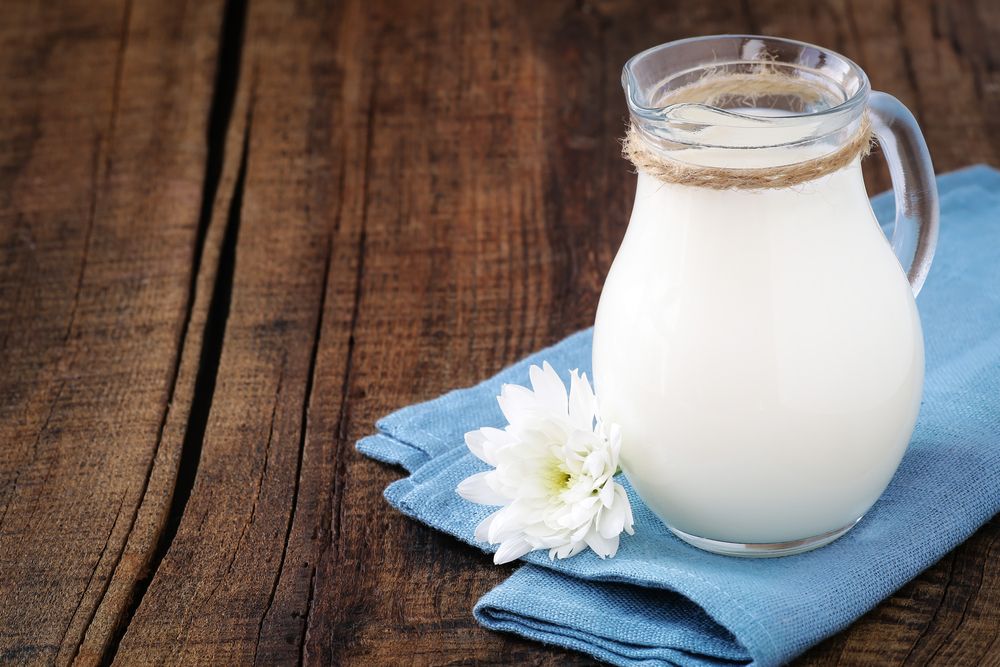
Protein (per 1 cup): 8.5 grams
Cow’s milk is an excellent choice for adding high-quality protein to your diet. It contains two key protein types: casein (80%) and whey (20%). Whey is quickly digested and absorbed, making it ideal for muscle recovery, while casein digests more slowly, promoting satiety and long-lasting energy.
Packed with Nutrients
Beyond protein, cow’s milk is a rich source of essential nutrients like calcium, vitamin D, B vitamins, and potassium. With approximately one gram of protein per ounce, an eight-ounce glass delivers around eight grams of protein, whether you prefer skim, 2%, or whole milk. Opting for grass-fed milk boosts the nutritional value further, providing higher levels of omega-3 fatty acids and conjugated linoleic acid (CLA), which supports overall health.
Supports Muscle and Body Composition
Cow’s milk has been linked to improved body composition and increased lean muscle mass. Research, including a study published in Clinical Chemistry, shows that milk drinkers tend to have more lean muscle. For athletes, milk is a go-to recovery beverage, helping to repair muscle tissue and maintain strength after training.
Chicken Breast

Protein (per 3-ounce serving): 27 grams
Chicken breast is a top-tier source of lean protein, offering more protein per ounce than beef. A 3-ounce serving of cooked, skinless chicken breast provides about 27 grams of protein for just 140 calories, making it a go-to choice for anyone aiming to build muscle or maintain a healthy weight.
Rich in Key Nutrients
Beyond its protein content, chicken breast is packed with essential nutrients. It’s an excellent source of B vitamins, selenium, and phosphorus, and also delivers potassium, magnesium, and zinc—key players in supporting overall health and wellness.
Supports Weight Management
With its high satiety effect, the protein in chicken breast helps you feel full, making it easier to manage your weight. Research published in Food and Nutrition Research highlights that skinless chicken breast is exceptionally lean, containing just 1% fat, with only a small fraction being saturated fat. Substituting chicken breast for higher-fat animal proteins may also lower your risk of cardiovascular disease and type 2 diabetes, adding to its health benefits.
Turkey Breast
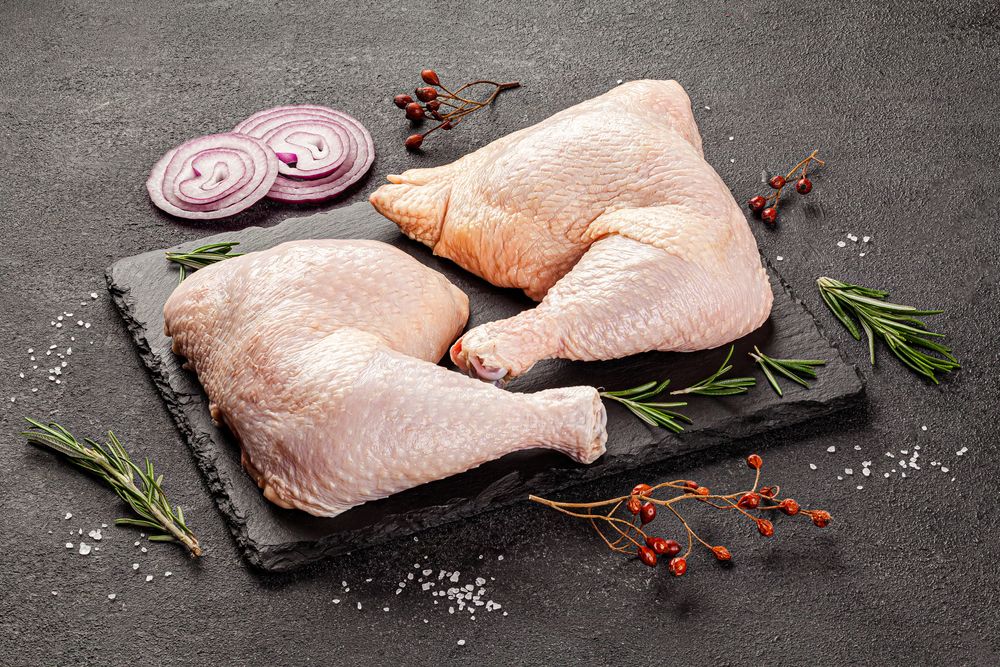
Protein (per 4-ounce serving): 27 grams
Turkey breast is a fantastic source of lean, high-quality protein. A 4-ounce serving of skinless turkey breast provides approximately 27 grams of protein with just 130 calories, making it a perfect option for those seeking a protein-packed, low-calorie meal.
Packed with Essential Nutrients
Similar to chicken breast, turkey breast is rich in vital nutrients like B vitamins, niacin, selenium, and zinc. Naturally low in fat, it’s a heart-healthy choice that fits seamlessly into a balanced diet.
Reduced Cancer Risk
For maximum health benefits, avoid processed turkey products like deli meats, which often contain added sodium and preservatives. Instead, choose minimally processed, skinless turkey breast to prepare at home. This not only ensures a wholesome meal but also allows you to enjoy turkey’s nutritional benefits across several dishes.
Research published in the journal Nutrients highlights that while red and processed meat may elevate cancer risk, white meats like turkey do not. Including turkey breast in your diet is a nutrient-dense and health-conscious way to enjoy a lean protein source.
Cottage Cheese
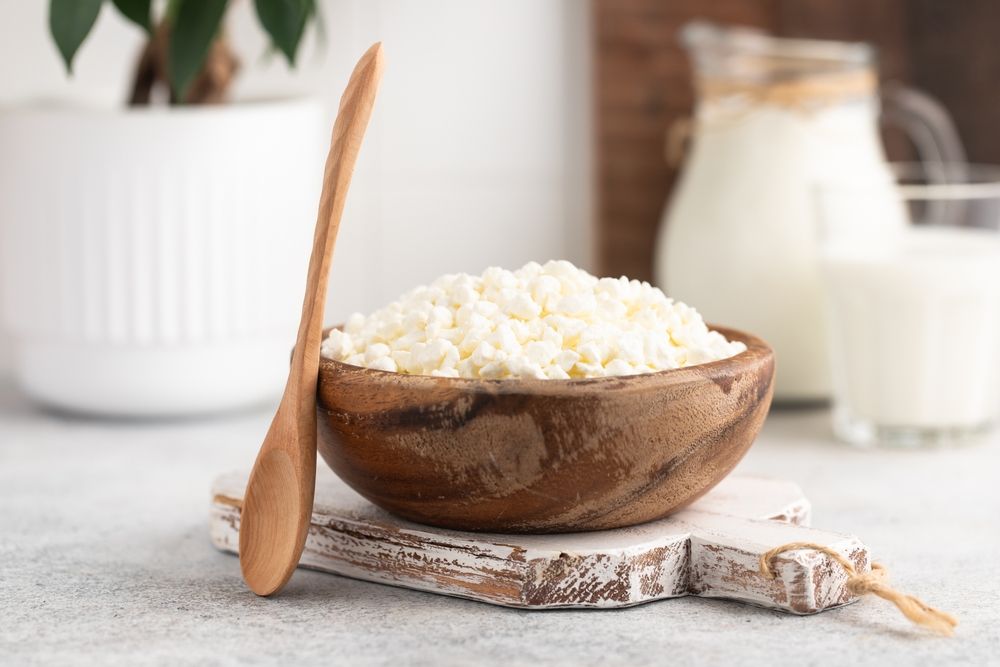
Protein (per 1/2 cup): 14 grams
Cottage cheese, once a staple of 1970s diet culture, has experienced a major resurgence, thanks to its impressive nutritional profile and popularity among athletes and health enthusiasts.
Excellent Protein-to-Calorie Ratio
Low-fat cottage cheese is a standout for its high protein content relative to calories. A half-cup serving of low-fat, plain cottage cheese provides approximately 14 grams of protein for just 100 calories, making it an efficient and nutrient-dense protein source. It’s also rich in calcium, supporting bone health.
Promotes Satiety
Cottage cheese is a satisfying snack option. Research published in the journal Appetite found that snacks of cottage cheese and eggs provided comparable satiety, helping participants consume less later in the day. This makes it an excellent choice for managing hunger and controlling calorie intake.
Slow-Release Protein Benefits
About 80% of the protein in cottage cheese is casein, a slow-digesting protein that helps keep you feeling full, stabilizes blood sugar levels, and supports muscle recovery after exercise. Whether as a post-workout snack or part of a balanced meal, cottage cheese offers long-lasting nutritional benefits.
Beans
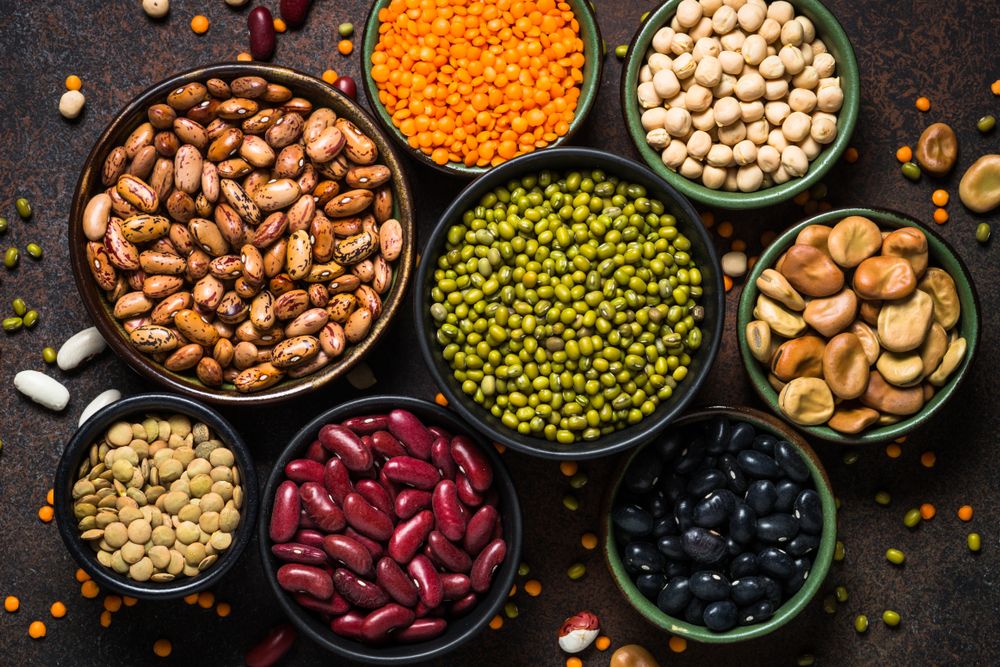
Protein (per 1 cup black beans): 15 grams
Black beans are a powerhouse of plant-based protein, delivering 15 grams per cup along with a treasure trove of nutrients like fiber, antioxidants, zinc, B vitamins, potassium, and magnesium. Their nutrient density makes them an excellent choice for any diet.
A Filling and Satisfying Food
The protein and fiber combo in black beans works wonders for satiety. This dynamic duo not only curbs hunger but also promotes healthy digestion, making black beans a hearty and satisfying addition to your meals.
Heart-Healthy Benefits
Research published in the American Journal of Clinical Nutrition highlights the polyphenols in beans, which help lower harmful LDL cholesterol levels. Regular bean consumption has also been linked to a reduced risk of metabolic syndrome, heart disease, and type 2 diabetes, supporting overall cardiovascular health.
Recommended by Dietary Guidelines
The Dietary Guidelines for Americans advocate for three cups of beans or legumes each week, or about half a cup daily. Adding black beans to your diet regularly is a simple way to enhance your nutrient intake and promote long-term health.
Soyfoods (Edamame, tofu, soymilk)
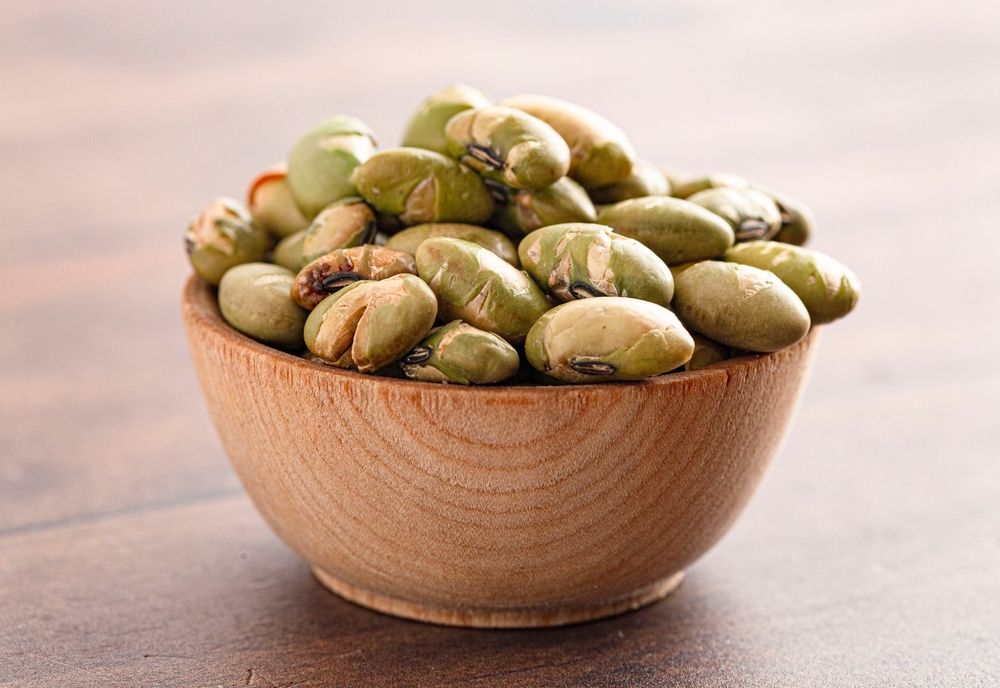
Protein (per 1 cup edamame): 18 grams
Protein (per 1/2 cup tofu): 22 grams
Soy foods are among the best plant-based protein options, especially for those adopting a plant-based or vegetarian diet. Unlike most plant proteins, soy is a complete protein, offering all nine essential amino acids.
Packed with Nutrients
Edamame (steamed immature soybeans) delivers 18 grams of protein, 8 grams of fiber, and approximately 200 calories per cup. Soy products like tofu also pack a nutritional punch, providing 22 grams of protein per half-cup serving. Soybeans are rich in magnesium, iron, B vitamins, omega-3 fats, and fiber, making them a nutrient-dense addition to your meals.
Heart-Healthy and Low in Saturated Fat
Soy foods contain minimal saturated fat compared to animal proteins, making them a heart-smart choice. Their plant-based nature also aligns with dietary recommendations for reducing cardiovascular risk.
May Reduce Cancer Risk
Soybeans are a natural source of isoflavones, compounds that studies suggest may support bone health and provide protection against certain types of cancer. Incorporating soy foods like edamame and tofu into your diet can enhance your nutrition while potentially supporting long-term health.
Lentils
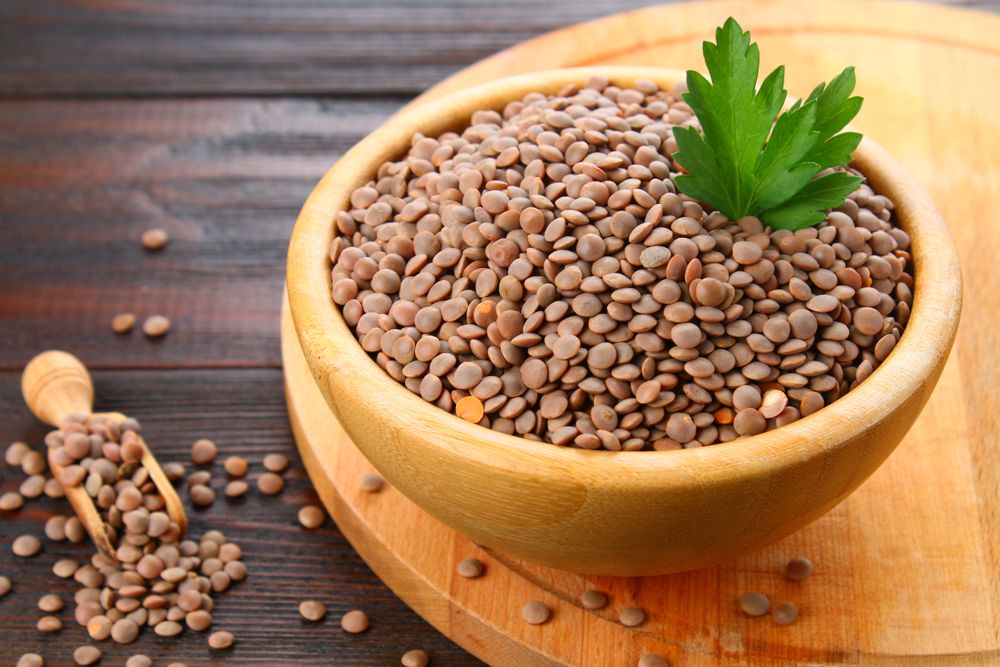
Protein (per 1 cup, cooked): 18 grams
Lentils, protein-packed seeds from the legume family, are a versatile and nutritious plant-based protein source. Available in various colors—brown, red, yellow, black, and more—they provide about 18 grams of protein per cooked cup, with only 230 calories, making them comparable to most beans.
Rich in Essential Nutrients
Lentils are loaded with B vitamins, iron, zinc, potassium, and magnesium. They’re also a powerhouse of antioxidants, which help combat inflammation and reduce the risk of chronic diseases.
Anti-Inflammatory and Disease-Fighting
Research published in the International Journal of Molecular Sciences highlights the bioactive compounds in lentils that contribute to lowering the risk of diabetes, obesity, certain cancers, and cardiovascular disease. Adding lentils to your meals not only boosts your protein intake but also supports long-term health and wellness.

